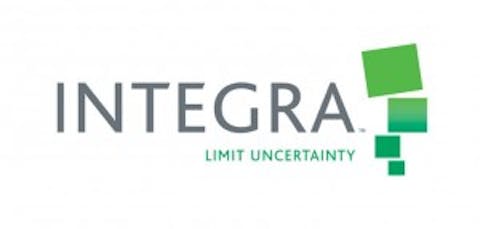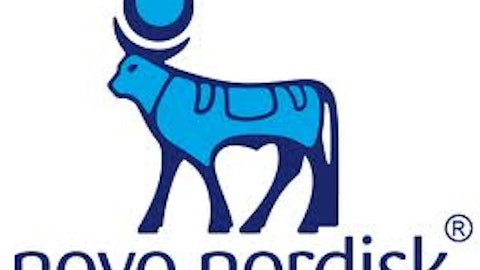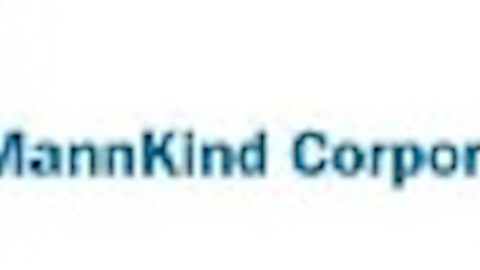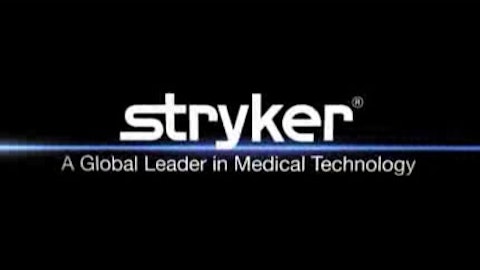The orthopedic implants market is a growing segment with increasing demand for extremities, spine, and orthobiologics. Large companies like Depuy/Synthes from Johnson & Johnson, Medtronic, Zimmer, and Stryker are majority players in the market. However, the sector offers opportunities for small and mid-sized players with cost-efficient operations and competitive pricing. New Jersey-based Integra Lifesciences Holdings Corp (NASDAQ:IART) is a mid-sized company that offers a wide range of products, devices, and instruments for orthopedic and neurosurgery.

Background
Integra Lifesciences Holdings Corp (NASDAQ:IART), a $1.07 billion medical technology company, is a leading provider of surgical instruments to hospitals, surgery centers, and clinics in the U.S. The company primarily develops, manufactures, and markets surgical implants and medical instruments for neurosurgery, orthopedic extremity, spine, and reconstructive surgery. The company has a patented technology to develop soft tissue products.
Integra Lifesciences Holdings Corp (NASDAQ:IART) offers products in three core businesses including regenerative products (soft tissue products), medical devices, and instruments that can be used in neurosurgery, orthopedic, and general surgery. It develops soft tissue products based on its proprietary collagen matrix and de-mineralized bone matrix technologies. The tissue-engineered products are approved by the FDA to use in neurosurgery, orthopedic, and general surgery.
Key target market
Around 100 million people in the U.S. and nearly 2 billion worldwide suffer from brain or nervous system disorders. These include depression, anxiety, epilepsy, Alzheimer’s, Parkinson’s, and other related disorders. The market growth is driven by increasing neurological disorders and technological advancement. The market is largely captured by J&J, Medtronic, and Stryker. Integra Lifesciences Holdings Corp (NASDAQ:IART) offers a variety of products used in neurosurgery. Of these, systems are used to measure various brain parameters, devices to access brain and clean excess liquid from the brain; tissue repair through ultrasonic surgery systems, and dural grafts to repair the brain’s internal structure.
Orthobiologics is a growing segment within the orthopedic market. The U.S. orthobiologics market is expected to grow at a compounded annual growth rate of 15% to reach $6 billion in 2016. The growth is primarily driven by increasing elderly population, higher obesity, rising sports injuries and road accidents, and increasing patients’ awareness toward novel products. Technological advances such as nanotechnology will support growth in the industry. Besides large players, medium-sized companies like Wright Medical, NuVasive, Inc. (NASDAQ:NUVA), and Integra Lifesciences Holdings Corp (NASDAQ:IART) have some presence due to their innovative products and technologies. Integra develops products for bone repair made from its owned de-mineralized bone matrix technology.
Around 10 million adults in the U.S. suffer from chronic back pain each year. The majority have pain due to compression of nerves either in the spine or legs. In most cases, patients are treated with painkillers, physical therapy, steroid injections, or are suggested to change their lifestyle. However, lately the spine market isn’t doing all that well in the U.S.
Integra’s competitive landscape
In spine surgery, Integra competes with NuVasive, Inc. (NASDAQ:NUVA), the fourth-largest player in spine segment globally. The company offers a comprehensive range of spine products (more than 80 unique products) used for spine surgery. Its Maximum Access Surgery, or MAS, platform is used for lateral spine fusion. The company has a strong cash balance of $272.7 million, which will comfortably see it through growth and R&D in the near future. However, the company is facing multiple Medicare-related lawsuits, and analysts are not sure how it can hit a 20% growth in operating margins as predicted by management.



